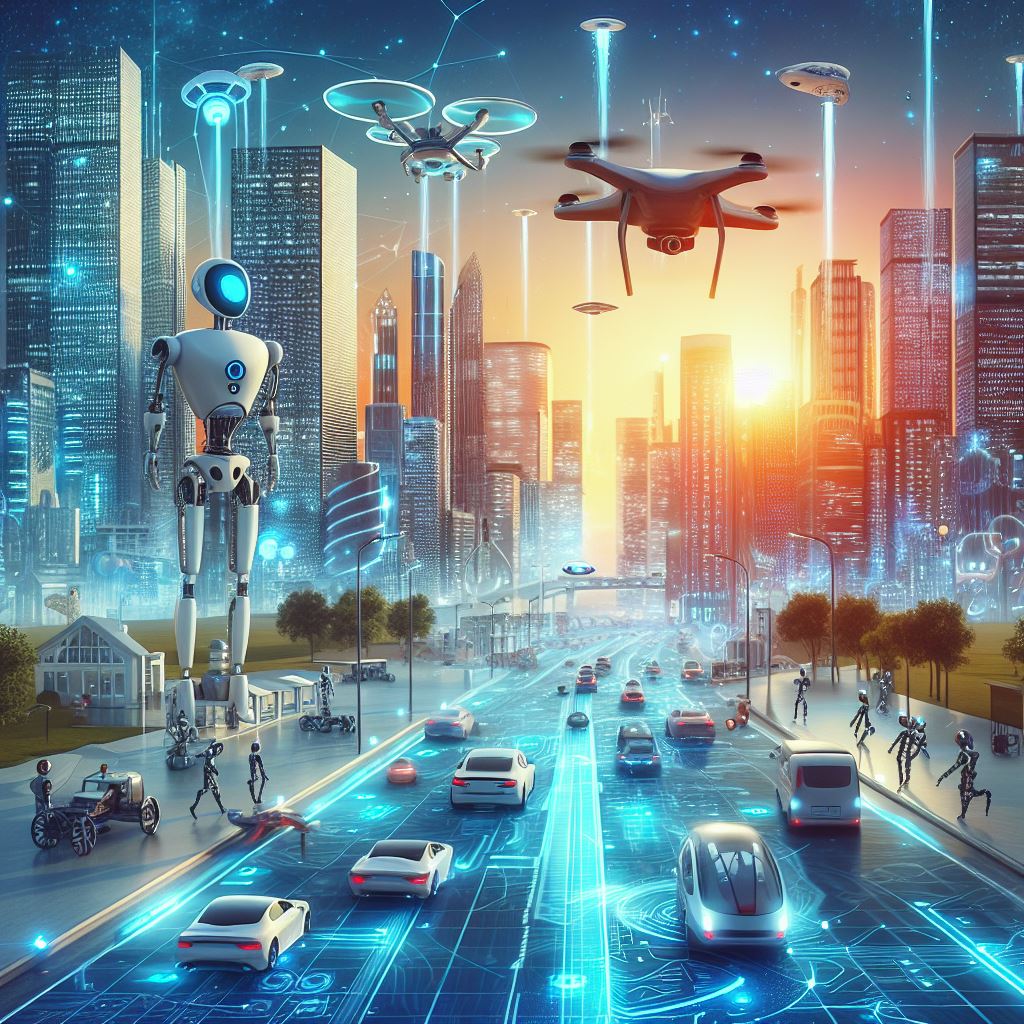Artificial Intelligence (AI) is a branch of computer science that aims to create systems capable of performing tasks that normally require human intelligence.
These tasks include learning, reasoning, problem solving, perception, and language use.
THE artificial intelligence can be classified into two different types: weak AI and strong AI.
THE Weak AI, also known as narrow AI, is a system designed and trained to perform a specific task.
Index

On the other hand, the Strong AI, also known as general AI, is a system with general cognitive abilities. When presented with an unfamiliar task, a strong AI is capable of finding a solution without human intervention.
Strong Artificial Intelligence
THE Strong Artificial Intelligence (Strong AI), also known as Artificial General Intelligence (AGI), is a theoretical form of AI that replicates the human functions, such as reasoning, planning, and problem-solving. If researchers can develop a strong AI, the machine would require human-like intelligence, have its own consciousness, and be able to solve problems, discover, and plan for the future.
Strong AI aims to create intelligent machines that are indistinguishable from the human mind. However, like a child, the AI machine would have to discover through input and experience, constantly progressing and improving its skills over time.
A theoretical example of strong AI would be a system that can pass the Extended Turing Test. This test assesses the AI’s textual, visual, and auditory performance and compares it to human-generated output. If the system can behave indistinguishably from a human across a variety of tasks, it would be considered strong AI.
However, it is important to note that strong AI is still a concept and not a tangible reality. We are still far from developing an AI that can completely replicate human intelligence in every aspect.
Weak artificial intelligence
THE Weak Artificial Intelligence (Weak AI), also known as Narrow AI, is a type of artificial intelligence that is limited to a specific or narrow area.
Weak AI simulates human cognition and has the potential to benefit society by automating time-consuming tasks and analyzing data in ways that humans sometimes cannot.
Weak AI is a simulation of human cognitive function, and computers may only appear to think, but are not actually conscious in any sense of the word.
Weak Artificial Intelligence (Weak AI) that are present in our daily lives:
Route Apps:
Apps like Google Maps, Waze, and Uber use weak AI to optimize routes and provide real-time traffic information.
Virtual Assistants:
Apple's Siri, Amazon's Alexa, and Google Assistant are examples of weak AI. They can answer questions, play music, set alarms, and perform other tasks through voice commands.
Email Spam Filters:
Email spam filters use weak AI to identify and filter unwanted emails based on patterns and rules.
Search engines:
Google is a famous example of weak AI. It uses machine learning techniques to understand search terms and their synonyms, related topics, and more, which helps generate more accurate and faster search results.
Conclusion:
THE artificial intelligence has the potential to revolutionize many aspects of our lives, from automating routine tasks to performing complex tasks that can currently only be performed by humans.
However, the artificial intelligence It also raises ethical and philosophical questions. In particular, questions about what will happen when AI reaches or surpasses human intelligence.
THE artificial intelligence is a rapidly growing field of research and is becoming increasingly present in our everyday lives. As technology advances, we are likely to see AI become even more integrated into our lives.
THE artificial intelligence is a powerful and promising technology that has the potential to transform many aspects of our lives.
However, it is also important to consider the ethical and philosophical implications of this technology as we continue to explore and develop its capabilities.
Source: TEIXEIRA, John. What is artificial intelligence. E-galaxy, 2019.
